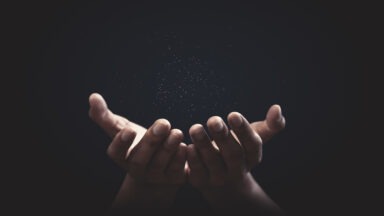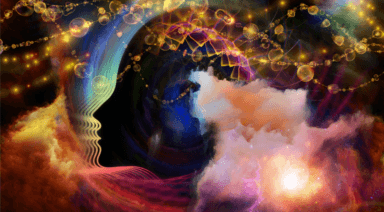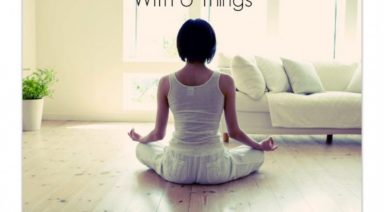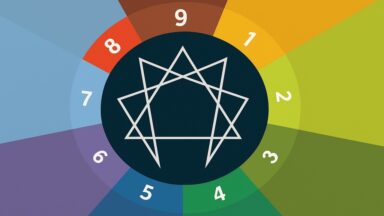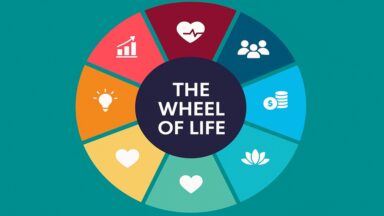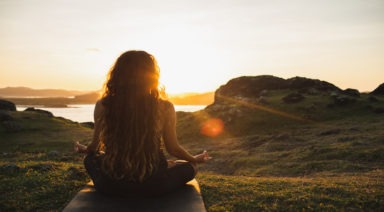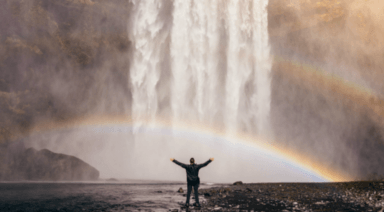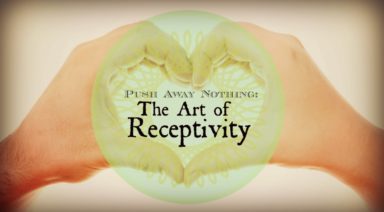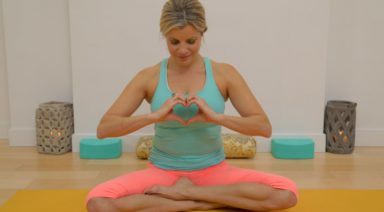What “Love Yourself” Means and 3 Ways to Get Closer To It

You’ve heard it before:
“If you don’t love yourself, nobody else will!”
“The most important relationship you have is the one with yourself!”
“Love yourself first!”
OK fine, you say, but none of these people or articles explain what “loving yourself” actually means. How do I know if I love myself? Do I really want to love myself? Doesn’t this make me a narcissist? What would it look like?
Visions come up of you screaming from the rooftops how great you are, dismissing anyone who disagrees with you, and refusing to believe that you could ever do wrong (making Kanye West look like he has low self-esteem).
Ok hold on. Back up. I said “love,” not “become obsessed with.” Is that how you would treat and feel about someone you love? Probably not, unless you were on a mission to a break up or have a restraining order placed on you. If you’ve felt love for another before, what did you think about—and how did you act towards—the recipient of your feelings? Chances are you thought the person was pretty awesome, enjoyed spending time with them, were compassionate and forgiving when they let you or someone else down (after ensuring you knew they had learned from the error), and practiced unconditional love towards them, leaving them feeling safe, supported, and secure. Maybe you didn’t love every aspect of them all the time, but you accepted, understood, and supported unconditionally.
Now turn that way of being in a romantic relationship inwards, towards yourself. You’re not infatuated, you still have expectations, and you’re not going to let yourself have free reign to fulfill every selfish desire; but, you have patience and compassion and don’t consider yourself to be a worthless individual if you make a mistake.
Make sense? If it’s a new way of relating for you intrapersonally, it’ll feel weird to begin with. It’ll feel anxiety-provoking and feigned and awkward. But, like most things, it will become comfortable and automatic with practice. Here are a few tips for learning and mastering the practice of self-compassion—or, as the rest of the world says, “loving yourself.”
- When you become aware of your critical voice, thank it for showing up with its good intentions. Congratulate yourself on noticing that it showed up, and ask yourself if you would say the same thing to a partner, friend, or a child in your situation. If the answer is no, try to think of what you might say to them, and respond that way to yourself instead. If you can’t think of something supportive that you might say, use the formula that I use with myself and teach to my clients:
“It’s understandable that I’m feeling (feeling) because (reason why it makes sense that you’re feeling that way), and it’s understandable that I did (behavior that you are judging) because I (reason anyone else in your shoes might have done the same thing). Something I can take away from this experience is (what will you know for next time due to this valuable experiential learning process?) and one reason why it’s good this happened is because (what is or might be a residual effect of this experience that is positive?).”
- Practice a compassionate meditation towards yourself. Find a comfortable seat. Close your eyes. Turn inwards—first to your breath. Focus on taking a few long, expansive breaths that make your tummy expand. Now go inwards into your experience. Scan what you’re feeling physically and emotionally. Notice your thoughts. Try to just watch these thoughts, feelings, and sensations without judgment. Don’t try to change them or analyze them. Just observe them and let them be. Now bring up feelings of warmth, patience, empathy, sympathy, comfort, and appreciation. This might take some time, or feel foreign or forced. It will get easier with practice. Now envision sending those qualities of compassion to yourself. Imagine them enveloping you like a warm blanket or a comforting hug. Picture the compassion traveling throughout your body and your mind, telling you that you are loved and worthy, reminding you that you are not alone so long as you have yourself. Once you feel competent practicing sending yourself compassion in this way, take it a step further. Find mountain pose in front of a mirror, and notice what thoughts and feelings come up as you look at your reflection. You might experience uncomfortable feelings that make you want to look away or be self-critical. Sit with those feelings. Once you are comfortable sitting in them, practice sending love to the person in the mirror.
- The preceding tips generally suggest how to react intrapersonally following transgression. But consider how you act towards yourself in response to success, compared to how you might react to someone you love. Our society overvalues modesty, to the point at which people feel guilty if they own or congratulate their successes. Just think about the last time you got a compliment, how you reacted to it. Or the last time you felt proud about something, then quickly squashed that feeling for fear of becoming complacent. Again, I’m not saying here that you should send an interoffice email around about how you’re better than your colleagues or would like to be addressed from here forward as “God.” This is saying give yourself space to enjoy pride, acknowledge your success, internally and externally, and try “Thank you, I worked hard,” or “Thank you, me too” in response to a compliment, instead of finding a deflecting or denying it.
If you’re not convinced you’re ready to give yourself space and compassion and support, that’s fair. Being self-critical has probably been at the root of a lot of your successes, and has likely protected you from a lot of painful feelings of rejection or failure. But how long will it be until you choose to love yourself unconditionally? What are your alternatives? Dislike? Hate? Reject? No one can make you make that shift but you. As Oscar Wilde says, “Be yourself, everyone else is taken.” You cannot change the person you inhabit, but you can change your relationship to them. Now get practicing, so can spend more of this lifetime with the one you love—you.
Research Shows Gratitude Practices Lower Inflammation
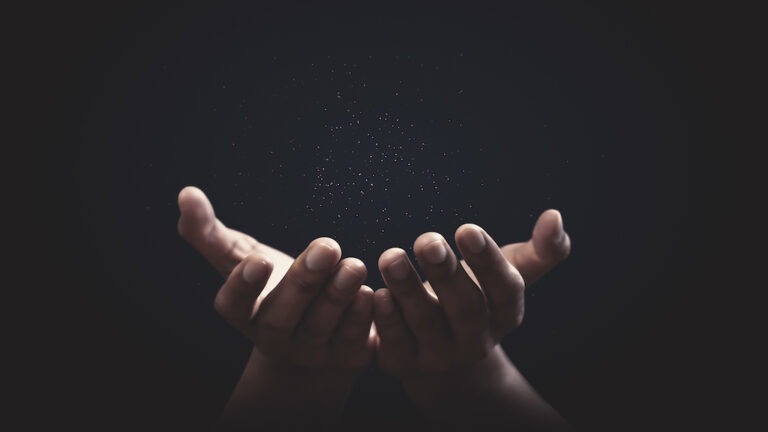
Researchers have uncovered the potential of a daily gratitude practice to heal the body and mind.
While research in the field of positive psychology has shown the clear benefits of positive attributes such as compassion and empathy, new studies suggest that gratitude may have the biggest effect of all.
Dr. Paul Mills has been studying the effects of gratitude as a professor at the University of California San Diego and as Director of Research at the Chopra Foundation.
“The way I define gratitude is, it’s a way of seeing the world with a sense of heartfulness; a sense of embracing-ness; a sense of appreciation for all that is being experienced. Typically people differentiate gratitude from thankfulness — it’s a response in exchange for something. Gratitude really, at its foundation, it’s more of a dispositional set where we walk around with gratitude for everything that’s going, just really the gift of life.”
Over the last several years, scientific studies into the psychological and physiological benefits of gratitude have grown exponentially.
“I think one of the main reasons that research on gratitude has taken off more than other areas that we typically could call positive psychology, is because the findings, the significance, in all the studies is so high and impactful. So many of the studies that have been looking at gratitude find more and more significant effects related to health and wellbeing.”
Some of the more recent studies on gratitude have focused on the physiological benefits to the heart.



